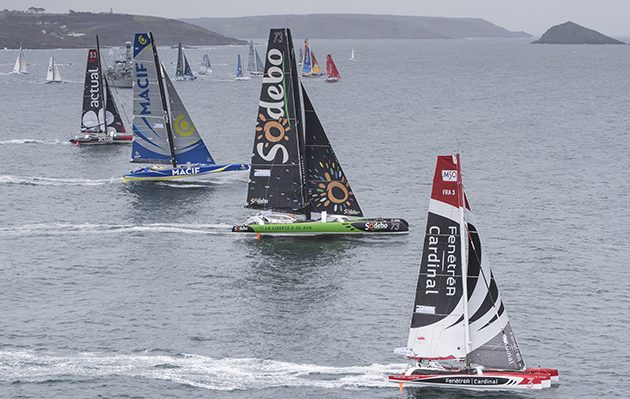Should something be done about the number of rescues in high-profile events? And if so, what? asks Skip
 Describing grand-prix offshore sailors as ‘idiots’ continually in need of rescue (as someone did in a letter to Yachting World recently) is a tad strong in the language. Nevertheless I can see this man’s point and empathise with his frustration.
Describing grand-prix offshore sailors as ‘idiots’ continually in need of rescue (as someone did in a letter to Yachting World recently) is a tad strong in the language. Nevertheless I can see this man’s point and empathise with his frustration.
The number of rescues in ocean racing, mostly in solo and double-handed events, as the boats get ever more radical, is reaching epidemic proportions. It’s also not lost on this author how this seems to happen to many of the same people, time and time again.
Yes, ‘great publicity for the sponsor’ is the usual litany from the press and pundits . . . and on the other side a very bemused and at times outraged audience.
With a Vendée Globe fleet nearing 30 entries we can only speculate on the numbers that will be bailed out before they get to the Equator, and certainly more beyond. Historical statistics back all this up quite clearly.
But before we get too hot under the collar, it should be noted that most of these rescues are instigated and carried out by the project’s shore team and paid for by the project’s backers.
I was also amused to see on British television the story of a crew of two wannabe transatlantic sailors in a small cruiser having to be towed in by rescue services seven times in succession. The TV clip was telling as, when the skipper was interviewed, he seemed totally oblivious to the mayhem his crew had perpetrated.
No charge for rescues
Of course, with amateur cruisers and people afloat in general it is a conundrum, and even to mention charging for rescues is a bridge too far to contemplate, given maritime statutes in place and not least the ethical considerations.
Take note though, in the mountaineering world it is not so benevolent an environment. In the French Alps rescue services on standby charge for each call-out and every climber and skier is advised to take out appropriate insurance – or else.
“With a Vendée Globe fleet nearing 30 entries we can only speculate on the the numbers that will be bailed out”
At sea the rub is that, although your insurance (if you have it) covers the cost of a vessel’s salvage, costs of a search and rescue (SAR) in order prevent loss of life are impossible to recover by a government and even harder to insure for.
Leaving aside rescues for cruisers as having no immediate solution, for high-profile racing campaigns there might be a system to ponder over, which could take some of the sting out of a SAR when the public bemoan the stretched rescue services, risk of life for the rescuers and sometimes the enormous costs incurred by the taxpayer.
Refundable bond
Race organisers can impose a sizeable refundable bond to be lodged by every entry sponsor and held in trust by the event. If the vessel is involved in a rescue whereby government services are called upon, this bond is forfeited by the entry – but not paid out to any government rescue service as they won’t be able to accept it for the reasons given above.
Rather, the bond is donated to a ‘not for profit’ organisation or charity which can be earmarked as the recipient for that event. It is a somewhat macabre way of raising funds, but this could temper the gainsayers who criticise these test pilots of maritime guided missiles.
In other words, if you screw up – and let’s make no mistake, when these mishaps happen it is generally owing to human error on the water, in the drawing office or on the builder’s floor, not an Act of God or force majeure – and government rescue services are brought into the equation, there should be a price to pay.
Whether that would make the skippers throttle back, or for that matter the designers take a pull and increase safety factors probably is over-optimistic. And I hope they don’t, because the cutting edge in this game must be maintained and not watered down.
But maybe it is time somehow for us to do away with the free lunch when it all goes pear-shaped.
Skip Novak is a columnist and regular contributor to Yachting World, and author of our acclaimed Storm Sailing Series, which you can also find on our website. He was born in Chicago in 1952 and started sailing at an early age. He has raced in four Whitbread Round the World races and in 2001 co-skippered the 108ft catamaran Innovation in The Race round the world in 65 days, an event in which his future wife, Elena, also raced. In 1987 he built the steel cutter Pelagic and has since spent 26 seasons in Tierra del Fuego, South Georgia and Antarctica, sailing and mountaineering.




